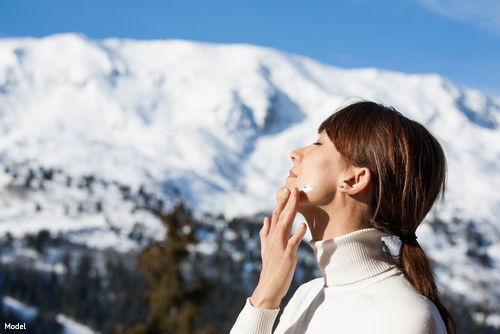We are often asked, ‘Do I really need to wear sunscreen in the winter?’ The answer is a resounding YES!! Here’s why:
The ozone layer, which offers some protection from the sun, is actually thinnest in the winter, reducing our natural defense against harmful rays during winter months.
Let’s clarify some information about the three types of UV rays:
UVB rays
UVB rays are strongest in the summer months. They cause sunburn and photodamage. They are also present in the winter, reflecting off snow and penetrating through the windows of your home, office, and car.
UVA rays
UVA rays are consistent throughout the year, not just in the winter months. They penetrate deeper than UVB rays and can contribute to skin cancer, including Melanoma.
UVC rays
UVC rays are a type of ultraviolet light that is completely absorbed by the Earth’s atmosphere and do not reach the surface. The blue light emitted by your phone screen, computer screen, TV, and indoor lighting is not UVC radiation, but it can still cause skin damage.
The dryness of winter, along with wind and cold, can dry your skin and reduce the effectiveness of your sunscreen over time, so plan on reapplying throughout the day.
When choosing a sunscreen, look for a physical block, not a chemical one. There’s no need to expose your body to unnecessary chemicals. The two best physical blocks are Zinc and Titanium.
Need help finding a good sunscreen? Don’t hesitate to ask us. We’re happy to help you find the best sunscreen to suit your needs.

